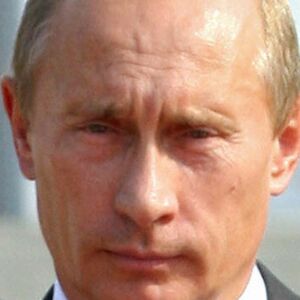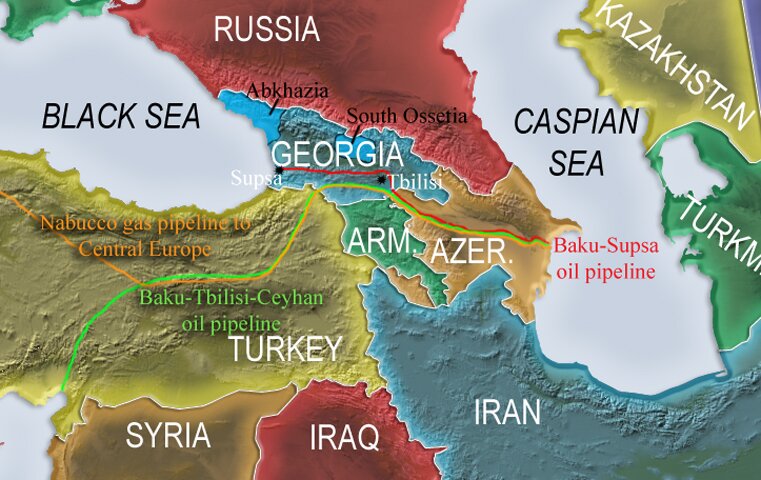
Russia Exposes Europe’s Greatest Need
Nothing exposes the truth like a crisis. Witness Russia’s premeditated, bloody sortie into the democratic, Western-friendly nation of Georgia.
The war appears to be winding down, but not before it exposed some ulcer-causing realities, including: Russia’s return to aggressive imperialism; America and the West’s gaping geopolitical and military impotence; the ardency of the Kremlin’s opposition to former Soviet satellites embracing nato and the West and the extent (all-out war) to which Russia is prepared to go to maintain dominance of its periphery; and, importantly, “the emergence,” as Ralph Peters noted in this must-read piece, of a “rogue military power with a nuclear arsenal” (emphasis mine throughout).
Each of these realities has been covered fairly extensively in the press, and in some cases—such as here, here and here—exceptionally well. But few have considered the reality that’s been exposed in Europe, and the far-reaching consequences the emergence of a “rogue military power with a nuclear arsenal” is bound to have in Europe.
Moscow’s invasion of Georgia exposed Europe’s greatest weakness: the cumbersome, fragmented state of European leadership and foreign policy!
On the surface it may appear Europe’s response to the Russian invasion was speedy and robust. That’s a mirage; its response was slow, timid and confusing. The only reason French President and current EU head Nicolas Sarkozy seems to have successfully brokered a peace agreement between the warring parties is that the deal heavily favors the Russians.
Reality is, while Russian tanks steamrolled a pro-Western, strategically located European ally, all European leaders could do was agree to conduct an emergency meeting of EU foreign ministers, make ineffective remarks about how the crisis should be handled, and shuttle diplomats back and forth between Tbilisi, Moscow and the Continent. The European Union didn’t issue a singular, united, forceful and respectable condemnation of Russia. There were no threats or ultimatums. War erupted nearly a week ago, and Europe still hasn’t figured out how to reprimand Moscow.
Instead, Russia’s unmitigated and bloody invasion was met by a hodgepodge of reactions from European leaders. While leaders of Poland and the three Baltic states (all former Soviet bloc states) issued a strongly worded statement calling on the EU and nato to oppose Russia’s “imperialist policy,” Italian Foreign Minister Franco Frattini spoke out against allowing an anti-Russian coalition to form in the EU, warning that a strong condemnation of Russia would be negative for all of Europe.
Janet Stobart and Sebastian Rotella from the Los Angeles Times were among the few who reported on Europe’s impotent response:
The crisis in the former Soviet republic of Georgia exposes the problems and limitations afflicting Europe, particularly the dream of a strong European Union playing a key role on the world stage …. The European reaction has in some ways evoked the familiar stereotypes: The EU is rich but bureaucratic, sophisticated but timid, big but profoundly divided between the aging powers of the West and impatient newcomers of the East. Its main weapon when dealing with Moscow, analysts say, is soft power.
This crisis exposed European leadership for what it is: a morass of conflicting motives and ideologies!
But Russia’s invasion of Georgia did something far more important than expose Europe’s greatest weakness. It exposed Europe’s greatest need, which is to become a mighty, united power capable of confronting Russian belligerency!
Many people look at the disarray in Europe and say this will never happen. Just watch! Both Bible prophecy and history inform us that Russian nationalism will be a powerful catalyst for the emergence of a united European power operating under the vibrant leadership of a singular man!
Sweat has been beading on Europe’s brow since January 2000, when Vladimir Putin set Russia on the path—marked by the destruction of democracy and the consolidation of government control over virtually every sector of industry and society—toward nationalism and autocracy. “Russian elections have recently moved President Vladimir Putin much closer to becoming a dictator,” wroteTrumpet editor in chief Gerald Flurry in January 2004, immediately after Putin was reelected. “This strikes intense fear in Europe.”
Europe’s fear has intensified tenfold since then!
In the past eight years, Vladimir Putin has transformed Russia into a nuclear-powered dictatorial state with phenomenal wealth and geopolitical influence, thanks largely to Russia’s massive oil and gas deposits. It gets worse: Putin’s strategic, well-timed, even brilliant, invasion of Georgia indicates the Russian military has evolved into a highly competent, advanced fighting machine, capable of rapid offensive deployment.
Author and international relations expert Alvaro Vargas Llosa summed up Mr. Putin’s legacy nicely:
Most checks and balances [have been] neutered: the judiciary, political parties, local governments, the media, private corporations, separatist regions. The security forces, the Orthodox Church and the energy industry became the pillars of the new regime. The first two, already steeped in Russian nationalism, required little purging. The energy sector needed some work, which is why the giant Yukos firm was broken up and its oil subsidiary gobbled by the government, as was Gazprom, the world’s largest producer of natural gas.
After securing absolute control over Russian energy, Putin sought to establish preeminence in the Russo-European relationship by letting the Europeans—who rely on Russia for 25 percent of their gas needs—know he’s prepared to exploit energy as an instrument to further Russian nationalism and Moscow’s foreign-policy goals. In the middle of winter in 2006, he suspended gas supplies to Europe over a price disagreement with Ukraine, through which 80 percent of gas from Russia to Europe flows. He did it again earlier this year, again in the middle of winter. Timed just after the sham “election” of new Russian President Dmitry Medvedev, this was a message to Europe that Medvedev was a puppet controlled by Putin, and that Russia’s energy policy was not about to change.
With blood pressure soaring, Europe’s leaders have worked hard in recent years to devise a plan to secure energy from other sources. Enter Georgia. This pro-Western state—strategically situated between the energy-rich Middle East and Central Asia, and the European continent—became instrumental in Europe’s plans to diversify away from Russia. Take the impressive 1,099-mile Baku-Tbilisi-Ceyhan (btc) pipeline, for example. Since 2005, this pipeline has allowed Azerbaijan and the oil giant BP to bypass Russia and pump crude oil from the Caspian Sea, through Georgia, to a Turkish port in the eastern Mediterranean Sea.

When Russia invaded Georgia last week, BP was forced to close the part of the pipeline running through Georgia!
Of course, Putin knew BP would have to shut this crucial oil artery. The message to Brussels was clear: Directly or indirectly, Russian hands are on the faucets controlling oil and gas in Georgia, the Caucasus and Central Asia!
Putin’s timing was perfect. Europe has been focusing on steadily advancing its largest energy project, the $12 billion Nabucco pipeline, which would transport gas from Central Asia, across the Caspian Sea, through Georgia, Turkey, Bulgaria, Romania and Hungary, to a terminal in Vienna. Russia’s invasion of Georgia puts a stick in the spokes of the Nabucco project!
Dr. George Friedman from Stratfor called the war in Georgia “Russia’s public return to great-power status.” Moscow has been on the boomerang path to empire status ever since Vladimir Putin became president in 2000. Events of the last few days reveal that Putin and Russia have achieved that goal. Imperialistic Russia is alive!
If Europe was fearful of Russian power four years ago, imagine how it feels today! Russia pretty much dictates Europe’s energy equation, it possesses stockpiles of nuclear weapons, it aids and abets the rogue activities of nations and groups like China, Iran and Hamas, and it meddles unabashedly in the affairs of Eastern Europe. Now Russia has shown itself to be not just a credible military force, but willing to defy international opinion and wage war!
Vladimir Putin has transformed Russia into one of the most dangerous nations on Earth!
Europe must be terrified!
How will it respond? Will it cower and disintegrate in the face of the roaring, bloodthirsty bear? Or will it shed its divisions and disagreements, consolidate behind an accepted leader, become spiritually, politically and militarily empowered, and stand up to defend itself from the Russian behemoth?
The answer is clear if we’re willing to believe European history and Bible prophecy. Both history and prophecy show that nothing is more terrifying than a terrified European continent!
Two thousand years of European history show us that when Europe is pushed, it always pushes back—often with ferocity and blitzkrieg warfare!
Remember the Roman Empire. Empowered by its highly organized, ruthless army, Rome conquered the continent of Europe—from the northern and southern rim of the Mediterranean, to Britain, to the frontiers of what is now called Russia. Remember the Frankish Emperor Charlemagne. It took him little more than a single generation to gut much of the Continent of non-Christians (particularly Muslims) and raise the Franks from a relatively small tribe of Europe to a single political, Christianized political unit dominating territory unparalleled in size since the days of imperial Rome. Remember the Crusades, a sickening series of violent offensive wars in the Middle East and the Holy Land by bloodthirsty Christian Europeans bent on curbing Muslim ambitions. Remember World War ii, when Adolf Hitler and Nazism, embraced by millions of eager converts, blitzed north, west, east and south across the plains of Europe, slashing unborn babies from their screaming mothers, pillaging towns and cities, erecting death camps, raping young girls, tossing infants in the air and shooting them and gassing and machine-gunning down millions of men, women and children.
The post-war peaceful and benign Europe we know is a temporary anomaly! European history is stained with retaliatory strikes against opposing forces and unimaginable horrors!
Informed by this history, isn’t it logical that a revived, nuclear-armed, energy-rich, war-mongering imperialist Russia might incite the resurrection of European imperialism?
This is something Herbert W. Armstrong warned about for years. “What Russia is doing will be the spark to bring the heads of nations in Europe together with the Vatican to form a ‘United Nations of Europe,’” he wrote in 1980. “[Europe’s] politicians cannot do this by themselves. Only with the collaboration of the pope can they do it. Russia will move slowly—but will keep moving! Other nations and events will move faster!”
For years, Mr. Armstrong warned that European nations would get the strong leadership they so desperately yearn for. In addition to history, Bible prophecy tells us Germany and the Vatican will provide this leadership. You can learn more about how Russian belligerency will forge the unification of a German-led European empire by reading “Russia Frightens Europe—and Fulfills Bible Prophecy,” and Germany and the Holy Roman Empire. Also request and read our free booklet Who or What Is the Prophetic Beast?
Whether you choose to read this literature or not, watch Europe!
Crises like Russia’s invasion of Georgia might expose Europe as a timid behemoth weighed down by bureaucracy and conflicting motives and ideologies. But they also expose Europe’s dire need for strong leadership. They motivate the European people and leaders toward fulfilling that need. A resurrected imperialistic Russia will serve as a prod toward the fulfillment of a prophecy Herbert Armstrong and now Gerald Flurry have been warning about for decades: the resurrection of an imperialistic, German-led, Catholic European empire!
